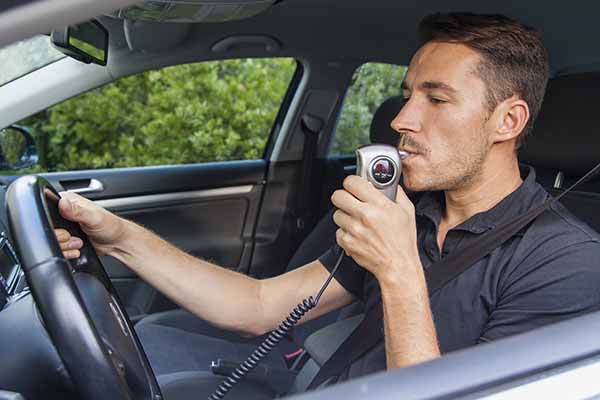Can You Legally Record Police Officers?
11/09/2025
If you were recently arrested for DUI in Illinois, a conviction might mean you’d need to install an Ignition Interlock Device (IID), also known as Breath Alcohol Ignition Interlock Device (BAIID) if you want to get and are eligible for driving relief during the statutory suspension period.
At Ktenas Law, our Chicago driver’s license reinstatement lawyers represent people who are facing suspended licenses because of DUI arrests. Thus, we understand the concerns that may plague you if you have been arrested for DUI, including the installation of a BAIID, and we’ll work hard to resolve those issues. If you’re facing DUI charges, contact our law firm as soon as possible. We’re dedicated to protecting clients’ driving privileges and we can help you as well!
One of the biggest drawbacks of a Monitoring Device Driving Permit (MDDP) and the BAIID devices for many people is the monthly costs it entails. However, compared to the probable penalties of being convicted of driving on a revoked or suspended license, the cost isn’t that much. On average, the Illinois Secretary of State estimates the fees as follows:

Even though these costs can be prohibitive for some drivers, if your life depends on your ability to drive and operate a motor vehicle, then the BAIID device is something you should consider. The DUI attorneys at Ktenas Law have extensive experience in areas of DUI law, including statutory summary suspension and BAIID device. Contact our law office in Chicago today at (312) 756-8652 for a no-cost initial consultation if you’ve been arrested for DUI so that we can protect your rights and interests and help you achieve a fair outcome.
During the first month of your statutory summary suspension period, you’ll receive an application for the Monitoring Device Driving Permit (MDDP) in the mail from the Secretary of State office. Also, this is included with the initial notice you receive when your statutory summary suspension period starts. Once you receive the application for the MDDP; complete and submit it back. The MDDP application asks for basic information about you, including your name, phone number, and address. Also, you must provide your driver’s license number.
Within 48 hours after the secretary of state’s office receives your application, you’ll receive a requirement package in the mail, which outlines everything else you must do to receive an MDDP.
Once the Secretary of State receives your requirements package, it takes between 7 and 10 days to process your application and issue your MDDP. During this time, the Secretary of State office will review your application materials and the court order in your DUI case. You will receive your MDDP when you’re within two weeks or before the 31st day of your statutory summary suspension. The MDDP doesn’t go into effect until that 31st day.
The Interlock device records the blood alcohol concentration (BAC) detected in every blow. BAC under 0.025 will allow your car to start. However, if you blow three times in half an hour and the device registers BACs of 0.025 or higher, you’ll be locked out of your car for 24 hours. After 24 hours, you’ll receive an alert to take the interlock device for an “early reading.”
Otherwise, you’re required to bring the device in for monitoring every 30 days. The Illinois secretary of State analyzes your results to establish if you consumed alcohol before starting your vehicle. Also, “rolling tests” monitor your BAC while driving.
The official BAIID violations include:
Once you get a letter from the state, you must explain why you failed the BAIID test within 21 days. Because if you don’t respond or can’t provide a reasonable explanation, you may get an extension to your suspension period for three months. If the BAIID device malfunctioned, say so, the state knows these errors happen. Also, if the error was because of someone else trying to drive your vehicle, then you should say so.
Consulting with an Orland Park DUI lawyer can be beneficial when responding to the letter. Continuing the habit of driving under the influence of alcohol can cause the state to revoke your permit.

No. Current ignition interlock devices are made to detect alcohol only. Thus, ignition interlock devices can’t detect drugs in your system. However, it’s not advisable to operate your vehicle while impaired with marijuana and any other drug, such as prescription pills.
Yes, anyone with a valid driver’s license can drive your vehicle even though it has an ignition interlock device installed. However, you must the following things into considerations before loaning out your car keys:
An ignition interlock device is an expensive deterrent to driving while intoxicated. Also, it can cause additional charges if you attempt to manipulate the machine or don’t adhere to its proper and legal usage. Before accepting any plea deal that requires you to install an ignition interlock device in your vehicle, consult with an experienced DUI criminal defense lawyer.
An experienced DUI lawyer will help you understand the realities of installing the alcohol interlock device. At Ktenas Law Firm, our team of dedicated DUI criminal defense lawyers has helped thousands of DUI victims in Chicago get a favorable outcome in their DUI cases and we can help you too! To schedule a free initial consultation with one of our experienced Chicago ignition interlock lawyers, call us today at (312) 756-8652, or chat with us online to learn how we can help.

